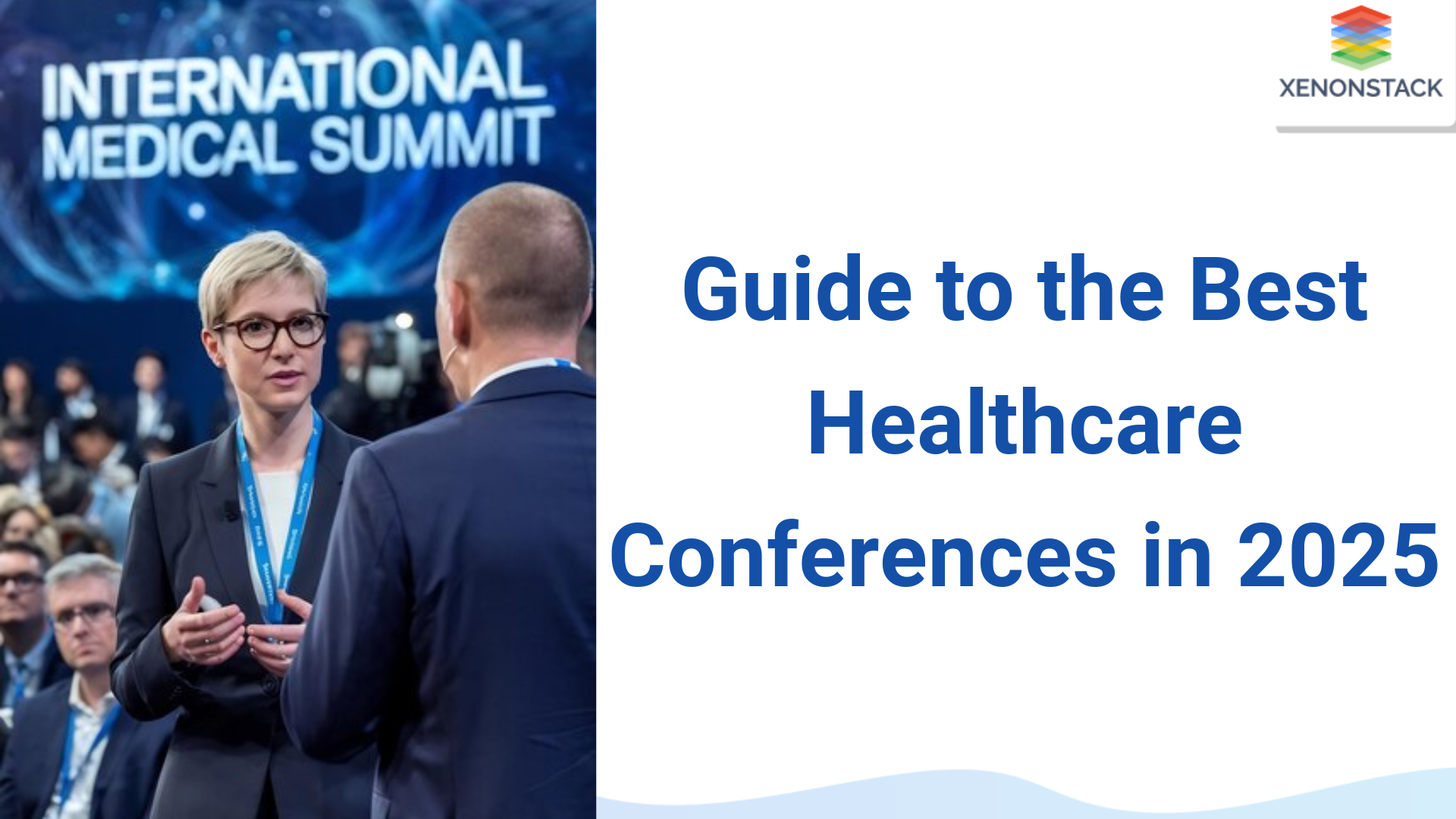
How to Choose Tech Conferences in 2025: A Definitive Guide
Navigating the ever-expanding landscape of tech conferences can feel overwhelming. With countless events vying for your attention and budget, making the right choice is crucial for professional development, networking, and staying ahead of the curve. This guide provides a comprehensive framework for how to choose tech conferences 2025, ensuring you invest your time and resources wisely. We’ll delve into critical factors, from aligning conference themes with your goals to evaluating speakers and networking opportunities, empowering you to make informed decisions and maximize your conference experience.
Understanding the Evolving Tech Conference Landscape
The world of tech conferences is constantly evolving, reflecting the rapid pace of innovation within the industry. The best tech conferences of 2025 will not only showcase cutting-edge technologies but also foster collaboration, knowledge sharing, and meaningful connections. Before diving into specific events, it’s essential to grasp the broader trends shaping the conference landscape.
- Increased Specialization: Conferences are becoming increasingly niche, catering to specific technologies, industries, or roles. This allows for deeper dives into specialized topics and more targeted networking opportunities.
- Hybrid and Virtual Events: While in-person events are making a comeback, hybrid and fully virtual conferences are here to stay, offering greater accessibility and flexibility.
- Focus on Diversity and Inclusion: Leading conferences are prioritizing diversity and inclusion, ensuring representation from underrepresented groups and creating a welcoming environment for all attendees.
- Emphasis on Interactive Experiences: Attendees are looking for more than just passive listening. Workshops, hackathons, and interactive sessions are becoming increasingly popular.
- Sustainability Considerations: The environmental impact of large events is under scrutiny, with conferences increasingly adopting sustainable practices.
Defining Your Goals and Objectives
Before you start researching specific conferences, take the time to define your goals and objectives. What do you hope to achieve by attending a tech conference? Are you looking to:
- Learn about new technologies and trends?
- Network with industry peers and potential collaborators?
- Find new job opportunities?
- Promote your company or product?
- Gain inspiration and motivation?
- Develop new skills?
Once you have a clear understanding of your goals, you can start to narrow down your options and focus on conferences that are most likely to meet your needs. Consider your specific areas of interest within the tech industry (e.g., artificial intelligence, cybersecurity, cloud computing) and the types of roles or industries you want to connect with.
Researching Potential Conferences
With your goals in mind, it’s time to start researching potential conferences. Here are some key factors to consider:
Conference Theme and Content
The most important factor is the conference theme and content. Does it align with your interests and goals? Review the conference agenda, speaker list, and session descriptions to get a sense of the topics that will be covered. Look for conferences that offer a mix of keynotes, technical sessions, workshops, and networking events.
Speaker Quality and Expertise
The quality of the speakers is another crucial factor. Are they recognized experts in their fields? Do they have a track record of delivering engaging and informative presentations? Research the speakers’ backgrounds and publications to assess their expertise. Pay attention to whether the speakers represent a diverse range of perspectives and backgrounds.
Networking Opportunities
Networking is a key benefit of attending tech conferences. Consider the types of networking opportunities that are offered, such as:
- Dedicated networking sessions
- Social events and receptions
- Exhibitor booths
- Online communities and forums
Think about the types of people you want to connect with and whether the conference is likely to attract them. Are you looking to meet potential employers, investors, or collaborators?
Conference Format and Location
Decide whether you prefer an in-person, virtual, or hybrid conference. In-person events offer the opportunity for face-to-face interactions and a more immersive experience, but they can also be more expensive and time-consuming. Virtual events are more accessible and affordable, but they may lack the same level of engagement. Consider the location of the conference and whether it is easily accessible for you. For in-person events, factor in travel costs, accommodation, and other expenses.
Conference Reputation and Reviews
Check the conference’s reputation and reviews. Read testimonials from past attendees and look for independent reviews online. Pay attention to both positive and negative feedback to get a balanced perspective. Consider the conference organizer’s track record and their experience in producing high-quality events.
Cost and Value
Evaluate the cost of attending the conference and whether it represents good value for your investment. Consider the registration fee, travel expenses, accommodation, and other costs. Compare the cost to the potential benefits of attending, such as learning new skills, networking with industry peers, and finding new job opportunities. Look for discounts or scholarships that may be available.
Evaluating Conference Agendas and Speakers
Once you’ve identified a few potential conferences, delve deeper into their agendas and speaker lineups. A strong agenda should offer a balance of:
- Keynote presentations: High-level overviews of industry trends and emerging technologies.
- Technical sessions: In-depth explorations of specific technologies or topics.
- Workshops: Hands-on training sessions where you can learn new skills.
- Panel discussions: Lively debates and discussions on relevant industry issues.
- Networking events: Opportunities to connect with other attendees and speakers.
When evaluating speakers, consider their:
- Expertise: Are they recognized leaders in their fields?
- Experience: Do they have a track record of delivering engaging and informative presentations?
- Relevance: Are their topics relevant to your interests and goals?
- Diversity: Do they represent a diverse range of perspectives and backgrounds?
Look for speakers who are not only knowledgeable but also passionate and engaging. A great speaker can make a significant impact on your conference experience.
The Role of AI in Conference Selection
Artificial intelligence is starting to play a role in helping individuals and organizations choose the right tech conferences. AI-powered platforms can analyze vast amounts of data, including conference agendas, speaker profiles, attendee reviews, and social media activity, to provide personalized recommendations. These platforms can also help you identify hidden gems – smaller, niche conferences that may be a better fit for your specific needs than the larger, more well-known events.
Furthermore, AI can assist with tasks such as scheduling, networking, and post-conference follow-up, making the entire conference experience more efficient and effective.
Budgeting and Justifying Your Conference Attendance
Attending tech conferences can be a significant investment, so it’s important to develop a budget and justify your attendance to your employer (if applicable). Your budget should include:
- Registration fee: The cost of attending the conference.
- Travel expenses: Airfare, train tickets, or mileage.
- Accommodation: Hotel or other lodging.
- Meals: Food and drinks.
- Incidentals: Miscellaneous expenses, such as transportation and entertainment.
To justify your attendance, focus on the potential return on investment (ROI). Highlight how the conference will help you:
- Learn new skills and technologies: Improve your performance and contribute more effectively to your team.
- Network with industry peers: Build relationships that can lead to new opportunities and collaborations.
- Stay ahead of the curve: Learn about emerging trends and technologies that can give your company a competitive advantage.
- Find new solutions to business challenges: Discover innovative approaches and best practices.
Provide concrete examples of how the conference will benefit your company and help you achieve your goals.
Making the Most of Your Conference Experience
Once you’ve chosen a conference and made your travel arrangements, it’s time to start planning how to make the most of your experience. Here are some tips:
- Review the agenda and identify the sessions you want to attend. Prioritize the sessions that are most relevant to your interests and goals.
- Prepare questions for the speakers. This will help you engage with the content and learn more about the topics that are being discussed.
- Connect with other attendees before the conference. Use social media or online forums to connect with people who are attending the same conference.
- Attend networking events and social gatherings. This is a great way to meet new people and build relationships.
- Follow up with your new contacts after the conference. Send them a thank-you note or connect with them on LinkedIn.
Top Tech Conference Platforms: A Comparative Look
Several platforms are used to host and organize tech conferences, each with its own strengths and weaknesses. Understanding these platforms can help you evaluate the overall conference experience. Here’s a brief comparison:
- Hopin: A popular platform for virtual and hybrid events, offering features like live streaming, networking rooms, and virtual booths. Known for its user-friendly interface and robust engagement tools.
- Bizzabo: An event management platform that supports both in-person and virtual events. Offers features like registration, ticketing, and attendee tracking.
- Eventbrite: A widely used platform for selling tickets and managing event registrations. Suitable for smaller conferences and events.
- Cvent: A comprehensive event management platform that caters to large-scale conferences and events. Offers features like venue sourcing, event marketing, and on-site management.
The choice of platform can significantly impact the attendee experience, influencing factors such as ease of navigation, networking opportunities, and access to content.
Future Trends in Tech Conferences
Looking ahead, several trends are poised to shape the future of tech conferences:
- Increased use of augmented reality (AR) and virtual reality (VR): AR and VR will be used to create more immersive and engaging conference experiences.
- Personalized conference experiences: AI will be used to personalize the conference experience for each attendee, based on their interests and goals.
- More sustainable conferences: Conferences will increasingly adopt sustainable practices to reduce their environmental impact.
- Greater focus on accessibility: Conferences will become more accessible to people with disabilities.
- Continued growth of virtual and hybrid events: Virtual and hybrid events will continue to grow in popularity, offering greater accessibility and flexibility.
Expert Insights on Selecting the Right Events
According to industry analyst firm Gartner, when choosing tech conferences, “aligning the event with your strategic priorities is paramount.” They emphasize the importance of identifying conferences that address specific business challenges and offer opportunities to learn about relevant technologies. Furthermore, leading experts in career development often advise attending conferences that allow you to network with professionals in your desired field, potentially opening doors to new career opportunities.
Final Thoughts: Making Informed Choices for 2025
Choosing the right tech conferences in 2025 requires careful planning and research. By defining your goals, evaluating potential events, and considering the factors outlined in this guide, you can maximize your conference experience and achieve your professional objectives. Remember to prioritize conferences that align with your interests, offer valuable networking opportunities, and feature high-quality speakers. As the tech landscape continues to evolve, staying informed about the latest trends and technologies is more important than ever. We encourage you to share your own conference experiences and recommendations in the comments below, fostering a community of informed tech professionals.

